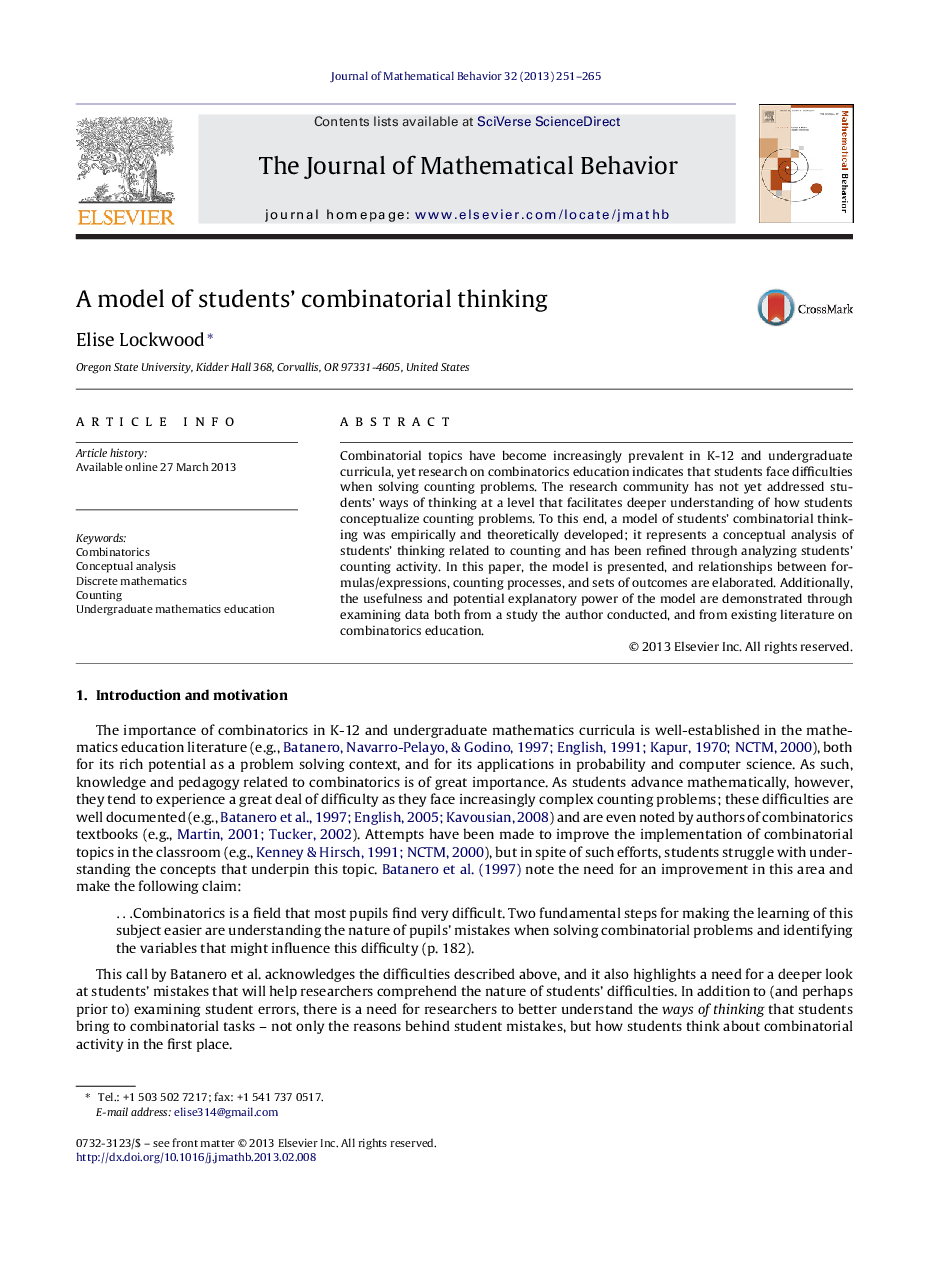| Article ID | Journal | Published Year | Pages | File Type |
|---|---|---|---|---|
| 360749 | The Journal of Mathematical Behavior | 2013 | 15 Pages |
Combinatorial topics have become increasingly prevalent in K-12 and undergraduate curricula, yet research on combinatorics education indicates that students face difficulties when solving counting problems. The research community has not yet addressed students’ ways of thinking at a level that facilitates deeper understanding of how students conceptualize counting problems. To this end, a model of students’ combinatorial thinking was empirically and theoretically developed; it represents a conceptual analysis of students’ thinking related to counting and has been refined through analyzing students’ counting activity. In this paper, the model is presented, and relationships between formulas/expressions, counting processes, and sets of outcomes are elaborated. Additionally, the usefulness and potential explanatory power of the model are demonstrated through examining data both from a study the author conducted, and from existing literature on combinatorics education.
► A model of students’ combinatorial thinking is presented. ► Components of the model are formulas/expressions, counting processes, and sets of outcomes. ► Relationships between these components are exemplified and discussed. ► The model is applied to a variety of existing data. ► The case is made for the use of model as an analytic lens for researchers in combinatorics education.
